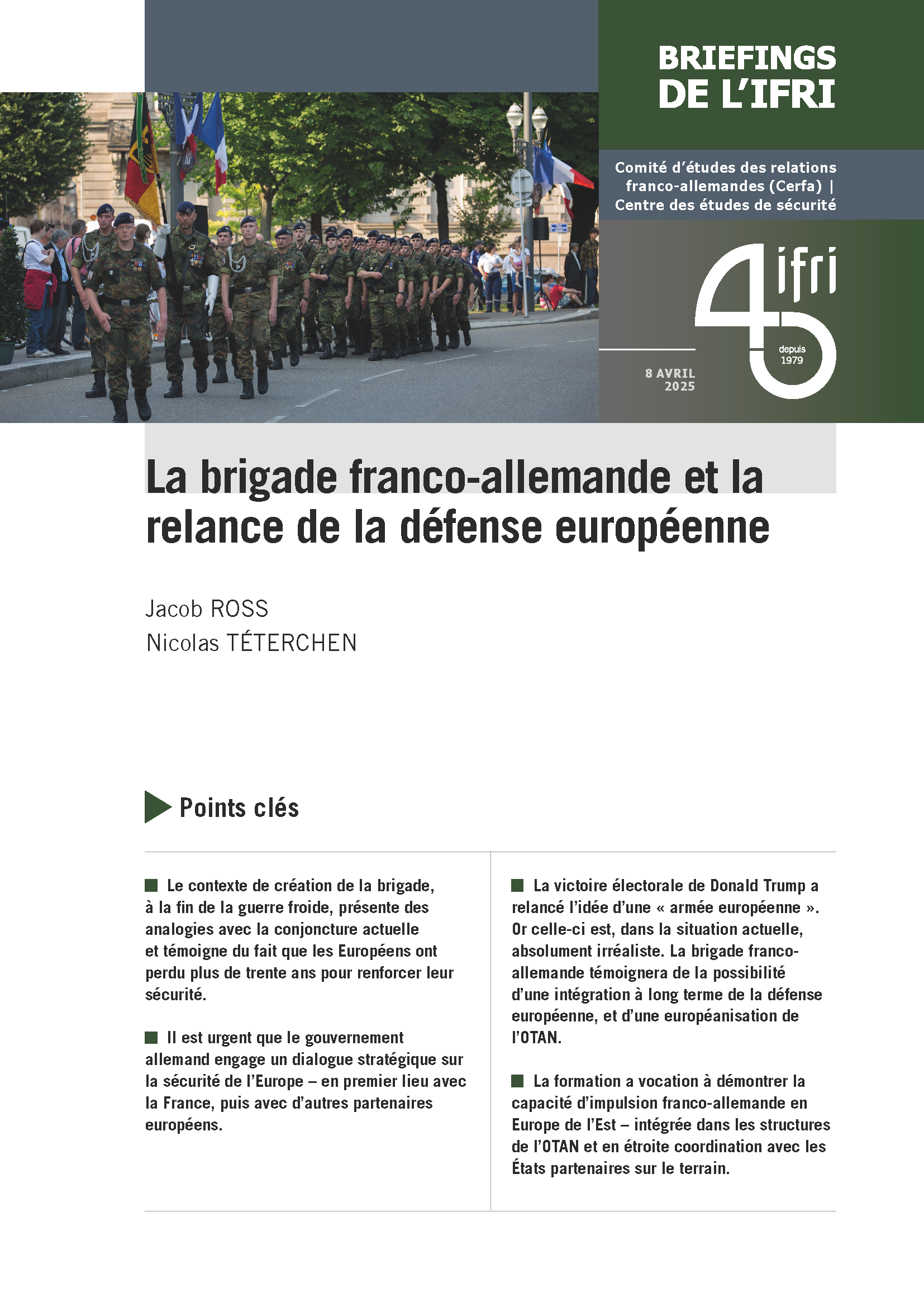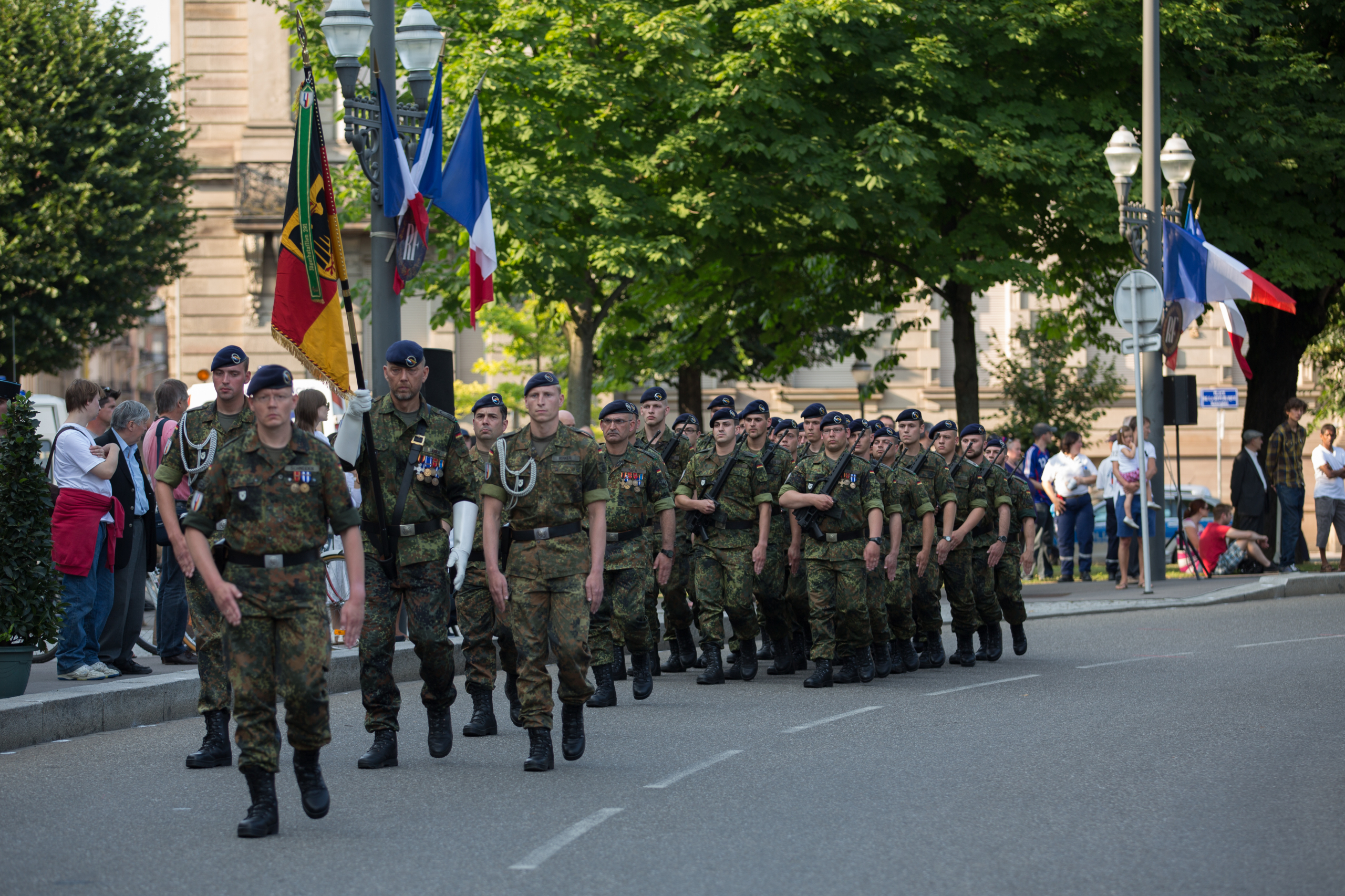The Franco-German Brigade and the Revival of European Defense

One thing has been clear since Donald Trump's return to the White House: the very existence of the European unification project is threatened. Unless it develops a sovereign defense policy to counter the war in Ukraine and the weakening of American security guarantees, the European Union will continue to see its internal cohesion and external attractiveness wane.

France and Germany can prevent this scenario, but will they show sufficient political will? The evolution of the Franco-German brigade will be a good indicator for assessing their actual readiness.
- The context of the creation of the brigade, at the end of the Cold War, has analogies with the current situation and testifies to the fact that Europeans have lost more than thirty years to strengthen their security.
- The German government urgently needs to engage in a strategic dialogue on Europe’s security – first with France, then with other European partners.
- Donald Trump's election victory has revived the idea of a "European army." But this is, in the current situation, completely unrealistic. The Franco-German brigade will bear witness to the possibility of long-term integration of European defense, and the Europeanisation of Nato.
- The brigade aims to demonstrate the Franco-German capacity for momentum in Eastern Europe – integrated into NATO structures and in close coordination with partner states on the ground.
Jacob Ross works as a research fellow at DGAP where he focuses on France and Franco-German relations. He previously worked as an assistant at the NATO Parliamentary Assembly and the French National Assembly, as well as in two departments of the French Foreign Ministry.
Nicolas Téterchen is a PhD student at the University of Cergy; his work focuses on the perceptions of defence policy in Germany from 1990 to 2022. He is a research assistant in the France and Franco-German Relations programme at the German Council on Foreign Relations (Deutsche Gesellschaft fur Auswärtige Politik, DGAP) in Berlin. He previously worked at the French-German Chamber of Commerce and Industry in Paris.
This briefing is partly based on discussions that took place during a colloquium in Strasbourg in May 2024. It was organized jointly by the DGAP and the Study Committee on Franco-German Relations (CERFA) of the French Institute of International Relations (IFRI).
This publication is available in the following languages:
- French: "La brigade franco-allemande et la relance de la défense européenne" (pdf)
- German: on the website of the DGAP: "Deutsch-französische Führung für ein souveränes Europa. Die Deutsch-Französische Brigade kann zeigen, ob der politische Willen dafür reicht" (pdf)

Available in:
Themes and regions
DOI
Ifri Briefing, 8 April 2025
Share
Download the full analysis
This page contains only a summary of our work. If you would like to have access to all the information from our research on the subject, you can download the full version in PDF format.
The Franco-German Brigade and the Revival of European Defense
Related centers and programs
Discover our other research centers and programsFind out more
Discover all our analysesBundeswehr: From Zeitenwende (historic turning point) to Epochenbruch (epochal shift)
The Zeitenwende (historic turning point) announced by Olaf Scholz on February 27, 2022, is shifting into high gear. Financially supported by the March 2025 reform of Germany’s “debt break” and backed by a broad political and societal consensus to strengthen and modernize the Bundeswehr, Germany's military capabilities are set to rapidly increase over the coming years. Expected to assume a central role in the defense of the European continent in the context of changing transatlantic relations, Berlin’s military-political position on the continent is being radically transformed.
Merz’ European Policy-making: The End of the ‘German Vote’?
Friedrich Merz’s European ambition is to turn Germany, long seen as hesitant into a leading actor within the European Union (EU). To that end, he has pledged to end the “German vote,” a phenomenon that epitomizes the paradox of a country both indispensable and frequently absent from European decision-making.

Securing critical raw material (CRM) value chains – a prerequisite for Europe’s technological resilience
At the heart of economic security, technological resilience is a backbone of the European Union’s (EU) competitiveness. The EU’s energy and digital transitions depend on critical raw materials (CRM).

Reconciling competitiveness and demographic change: a Franco-German imperative
France and Germany are facing parallel demographic shifts that could reshape the future of their economies and their social models. These shifts reflect broader European patterns but are magnified by the central role both nations play in EU governance and competitiveness.









